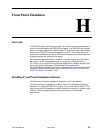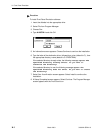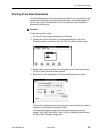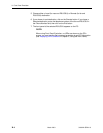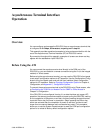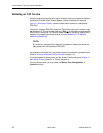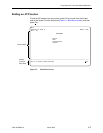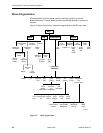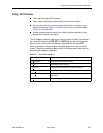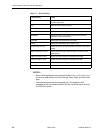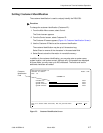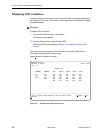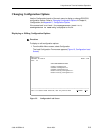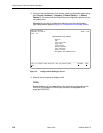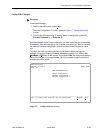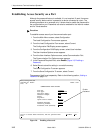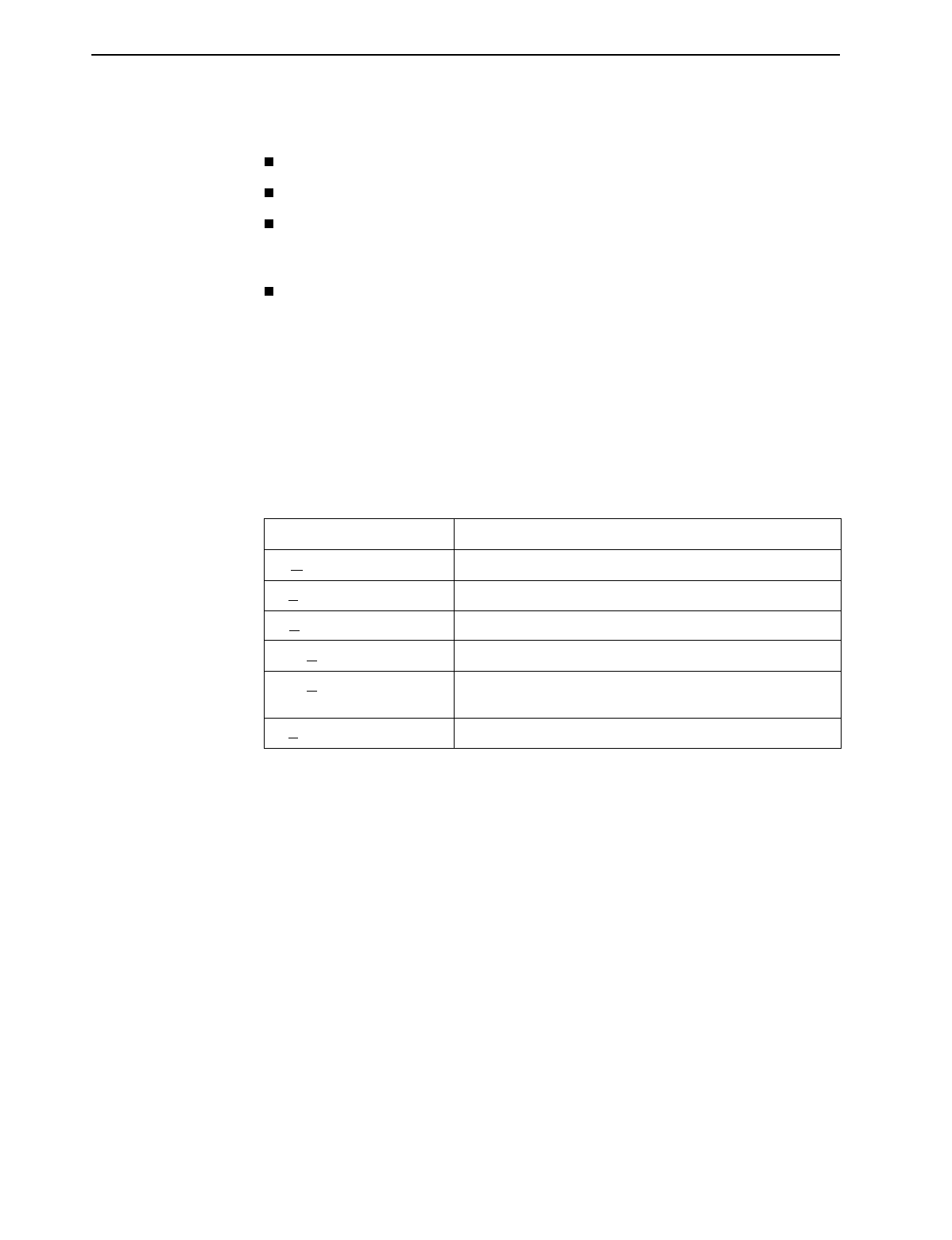
I. Asynchronous Terminal Interface Operation
3160-A2-GB24-10 March 2001
I-5
Using ATI Screens
There are three types of ATI screens.
Menu screens list selections available through the menu system.
Input screens allow you to edit or change information on a screen using
screen function keys (Table I-1, Screen Function Keys) or keyboard keys
(Table I-2, Keyboard Keys).
Display screens show the results from a data collection operation or they
display device-specific information.
The ATI supports character matching for entering values in fields. For example, if
the values for a field can be
DTE
,
NET
, or
PORT
and you enter a
D
and press
Return (Enter), then the field automatically populates with the value
DTE.
Once an operation is initiated, status messages appear in the last row of the
screen. These include
Please Wait
(when a command takes longer than five
seconds) and
Command Complete
.
Table I-1. Screen Function Keys
Screen Function Key Usage
M (MainMenu) Returns to the Main Menu screen.
E (Exit) Terminates the ATI session.
R (R
efresh) Updates the screen with the current information.
U (PgU
p) Pages up to the previously displayed page of information.
D (PgDn) Pages down to the previously displayed page of
information.
S (Save) Stores changes in nonvolatile memory.



